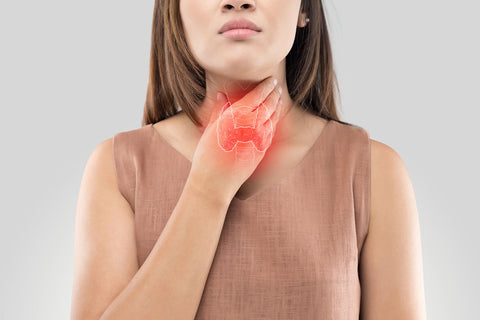For many of us, there’s no better way to wake up than to a hot, fresh cup of coffee. Coffee can help you feel awake, energized, and ready to take on your day. But if you overdo it, coffee can have negative effects on your body. Especially if you drink coffee later into the afternoon, it’s common to experience issues with getting quality sleep. In this blog, we’re taking a closer look at this popular beverage and investigating one of the most common concerns for people: the relationship between coffee and sleep. We also look into the effects of coffee on your body and provide some practical tips to help you get a better night’s sleep.
PhytAge Labs is proud to offer a full line of all-natural, organic health supplements to support your health and wellness. With many of the top-selling health supplements on the market today, including Tinnitus 911, Nerve Control 911, Prostate 911, and more, our health supplements can address existing health problems and improve your overall wellness. We’re sure to have an organic health supplement for your health goals.
How Does Coffee Affect the Body?
It’s important to first note that coffee, like most things, is perfectly safe in moderation. After all, did you know that roughly two-thirds of Americans drink coffee every single day? And 7 out of 10 Americans drink coffee every week. As one of the most popular beverages in the world, coffee can help us feel energized and more awake. Some studies suggest there are even additional benefits, including a lower risk of type-2 diabetes, a lower risk of depression, and it may even help protect against certain liver conditions.
But as a stimulant, coffee also has many other affects on your body, especially on your nervous system, heart, and digestion. Here’s how coffee affects these three parts of the body:
- Heart: while many people believe that caffeine increases your blood pressure and may even lead to heart arrhythmias, there is no strong evidence linking this. However, interestingly enough, some studies show that receiving your caffeine from energy drinks or other sources can lead to these health issues.
- Nervous system: caffeine can increase alertness, but it can also promote feelings of anxiety or panic, especially when you consume large amounts. It can also increase your dopamine levels and may have a positive impact on memory and cognition.
- Digestion: since caffeine increases the amount of acid that your stomach produces, it can cause heartburn for some people.
Why is a Good Night’s Sleep So Important?
While a cup of morning coffee can help energize us and get us ready for our day ahead, if you’ve had a good night’s sleep, you may not really need this morning jolt. Countless studies have demonstrated for years just how important good, consistent sleep is for both your body and mind. And yet, so many of us still struggle to get those recommended hours of restful sleep. But if you knew the full benefits of quality sleep, you may take the steps to ensure this becomes a priority for you each night.
Some of the most important benefits of good sleep include:
- Stronger immune system.
- Easier to maintain a healthy weight.
- Improved cardiovascular health.
- Better mood.
- Sharper thinking and better memory.
- Reduced levels of stress.
The Relationship Between Coffee and Sleep
As one might expect, caffeinated coffee is no friend to a good night’s sleep. Caffeine is a stimulant that promotes alertness. Thus, researchers note that caffeine works in your body as an adenosine receptor antagonist, which means that it blocks the adenosine receptor that will keep you from feeling tired and sleepy.
Caffeine hits your body very quickly and reaches its peak effect roughly 30 to 60 minutes after consumption. But many people may not realize that it has a much longer half-life, reaching up to 3 to 5 hours after consumption. A half-life determines the time that it takes your body to eliminate half of a substance in your body. Thus, as you can see, caffeine can stick around in your body long after that last cup of joe. As a result, this can cause you to have trouble falling asleep when your normally would as the caffeine is still being processed by your body. Coffee can also disrupt your normal sleep routine, your body’s internal clock, and make it more challenging to reach deep sleep.
6 Tips for Better Sleep
Have you cut out coffee from your afternoon routine but you’re still struggling to get good sleep each night? Consider trying some of these following tips for better sleep:
- Develop a consistent routine each night.
- Turn off your smartphone, laptop, and other screens well before calling it a night.
- Avoid large meals, caffeine, and alcohol before sleep.
- Get exercise throughout your day.
- Make sure where you sleep is dark, quiet, and comfortable.
- Limit your daytime naps.
Conclusion – The Relationship Between Coffee and Sleep
As one of the world’s most popular beverages, coffee plays an important role in many people’s lives. For many of us, that hot cup of coffee is as essential to your morning routine as getting dressed or taking a shower. Some of us may enjoy having a few more cups throughout your morning, especially if you’re powering through a difficult day at work. Some may even continue to sip on coffee or an espresso later into the afternoon. But if you’re one of these people, it’s important to understand the effect that coffee can have on your sleep.
For anyone who has tried to sleep after consuming coffee, the effects are clear. The caffeine in coffee can make it difficult to fall asleep since caffeine is a common stimulant. Additionally, coffee can delay the timing of your body’s internal clock and limit the amount of deep sleep you get, which is where most the benefits for your body occur. Even drinking coffee six hours before you call it a night can have real impacts on the overall quality of sleep. Thus, if you’re looking to improve your sleep schedule, find alternatives to coffee (decaf coffee counts, too) during your afternoons. Consider some of our tips for better sleep to also help revamp your sleep schedule so you can experience the full benefits of consistent sleep.
While getting quality, consistent sleep is one of the most important contributing factors for good health, many individuals are also including organic health supplements to boost their overall health and wellness. Organic, all-natural health supplements can help you address any nutritional gaps in your diet (which become more common as you get older) to ensure you’re getting the nutrients and vitamins you need to maintain the lifestyle you love.
At PhytAge Labs, we’ve developed a full line of organic health supplements to help you remedy existing health problems and also improve your overall wellness. With many popular health supplements, including Joint Relief 911, Tinnitus 911, Prostate 911, and more, we’re sure to have a health supplement for your specific health needs and goals. Contact us today to learn more about how our line of organic health supplements can help you live your best life. Together, let’s begin your journey toward a happier and healthier life.
 Cart
Cart


















































 12600 Hill Country Boulevard Suite R-275, Bee Cave TX 78738
12600 Hill Country Boulevard Suite R-275, Bee Cave TX 78738 1-800-822-5753
1-800-822-5753
